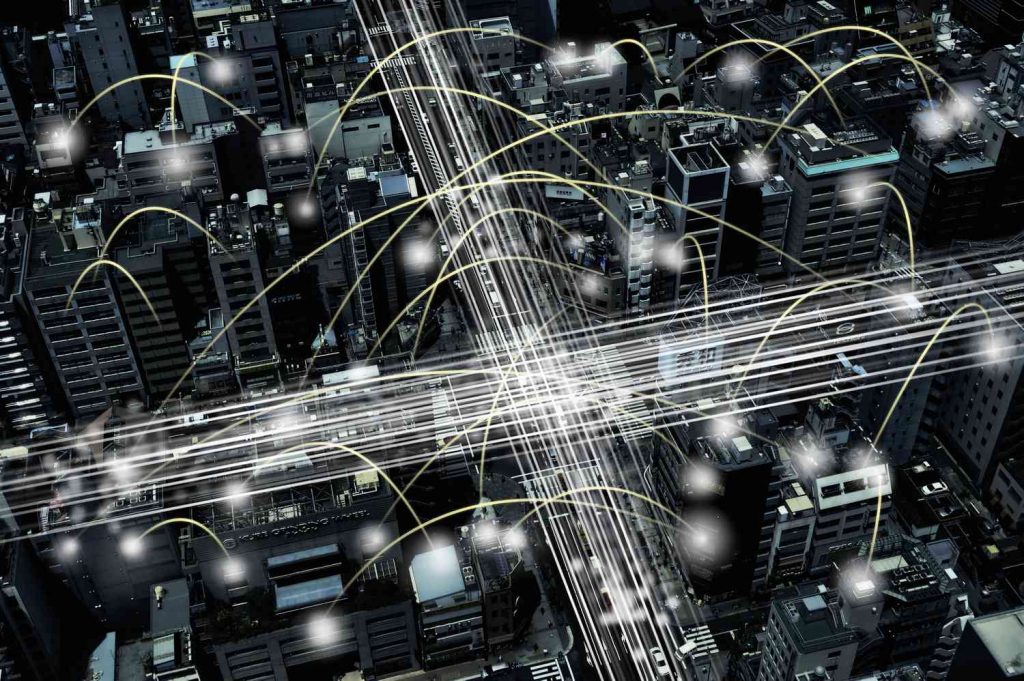[vc_row][vc_column][vc_column_text]Do you ever find yourself bogged down by slow internet speeds and laggy download times? If so, then it may be time to consider switching your broadband connection. Whether you need reliable home or business Internet services, there are two popular options that provide fast online connections: fiber optics and cable. But what’s the difference between them, and which one is better suited for your needs? In this blog post, we’ll explore the advantages of fiber vs. cable internet so that you can decide which service is right for you.
Related Link: How to Choose the Right Internet Plan
Overview of Fiber and Cable Internet – Speed, Latency, Reliability, Cost
Fiber internet is a newer technology that uses thin glass wires to transmit data using light signals, offering incredibly fast upload and download speeds, low latency, and high reliability. On the other hand, Cable internet uses coaxial cables to transmit data with less speed and reliability than Fiber. Fiber internet is generally more expensive than Cable, but the price has come down in recent years.
Have any questions regarding your internet options? Contact us today to get help!
Pros and Cons of Fiber Internet
Fiber internet offers several advantages over Cable. For one, it’s much faster, offering speeds up to 1Gbps, which is ideal for bandwidth-intensive activities like streaming 4K videos, online gaming, and large file uploads or downloads. Additionally, Fiber has a lower latency, which translates to a smoother online gaming or video conferencing experience. However, fiber internet is not widely available in all locations, and the installation process can take several weeks.
Pros and Cons of Cable Internet
Cable internet is widely used, affordable, and easy to install. It provides speeds that are suitable for most households and small businesses, making it a cost-effective option. However, Cable internet can be affected by the number of users in a particular area which can result in slower download and upload speeds. Additionally, Cable internet is generally more prone to connectivity issues caused by weather conditions or power outages.
Choosing the Right Connection for Your Home or Business
When it comes to choosing the right internet connection for your home or business, you have two main options to consider: Fiber and Cable. While both offer internet access to your home or business, there are some key differences to keep in mind. If you’re a heavy internet user or need faster speeds for activities like video conferencing or online gaming, then Fiber may be the best choice for you. However, if you’re on a budget or only use the internet for basic activities like browsing or streaming music, then Cable internet may be more your speed. Whatever your needs may be, it’s important to compare prices and availability from different providers in your area before making a final decision.
Tips on Managing Bandwidth Usage to Get the Most Out of Your Internet Connection
[/vc_column_text][/vc_column][/vc_row][vc_row][vc_column][vc_single_image image=”5461″ img_size=”full” alignment=”center”][/vc_column][/vc_row][vc_row][vc_column][vc_column_text]No matter which internet connection you choose, it’s important to use it efficiently to get the most out of it. Some ways to manage your bandwidth usage include limiting the number of devices that are connected to the internet, turning off unused devices, and avoiding bandwidth-intensive activities during peak hours. Additionally, regularly running antivirus software on your devices can help prevent malware and viruses that may slow down your internet speeds.
The Future of Fiber and Cable Internet: Upcoming Developments and Innovations
The future of fiber and cable internet is a fascinating topic that is sure to interest anyone who uses the internet. As technology advances and new innovations emerge, the speed, reliability, and affordability of internet connections are set to improve significantly. Developments such as DOCSIS 4.0 for cable internet and advancements in fiber optic networks promise to offer faster and more reliable internet speeds than ever before. Moreover, the expansion of fiber infrastructure and the deployment of next-generation broadband networks will further increase accessibility and affordability for consumers. As we move forward, advancements in fiber and cable internet are set to revolutionize the way we connect to the online world – and the future looks very bright indeed.[/vc_column_text][/vc_column][/vc_row][vc_row][vc_column][vc_single_image image=”5462″ img_size=”full” alignment=”center”][/vc_column][/vc_row][vc_row][vc_column][vc_column_text]
Troubleshooting Techniques if You’re Experiencing Problems With Your Internet Connection
In the modern world, having a strong and dependable internet connection is essential for carrying out our daily tasks. Even the best internet service providers, though, occasionally encounter connectivity problems. There are numerous troubleshooting methods you can use if you’re having trouble connecting to the internet. Resetting your modem or router by unplugging it for a brief period of time, then plugging it back in, is likely the most efficient method. Another method is to relocate your modem or router, or to try using Ethernet cables rather than Wi-Fi. If none of these methods work, it might be time to get in touch with your internet service provider for more help. Try these troubleshooting methods to get back online as soon as possible and stop being frustrated by internet connectivity issues.
Want to find more internet options in your area? Look at VMedia for different options near you!
Deciding Between Fiber and Cable Internet
It’s clear that deciding on the best internet service can be difficult. Fiber and cable internet have their own advantages and disadvantages in terms of speed, reliability, cost, data caps, and more. To make an informed decision about your internet provider, research what is available in your area and compare options to find the plan that suits your current needs and budget. If you’re looking for a generally faster connection with plenty of options for customization, then fiber internet may be the better choice. However if you want a reliable connection without the hefty price tag, cable may be the answer for you. Only you can decide what type of connection will work best for your needs.
Related Link: VMEDIA TV APP IS NOW AVAILABLE ON YOUR FAVOURITE STREAMING DEVICE![/vc_column_text][/vc_column][/vc_row]
